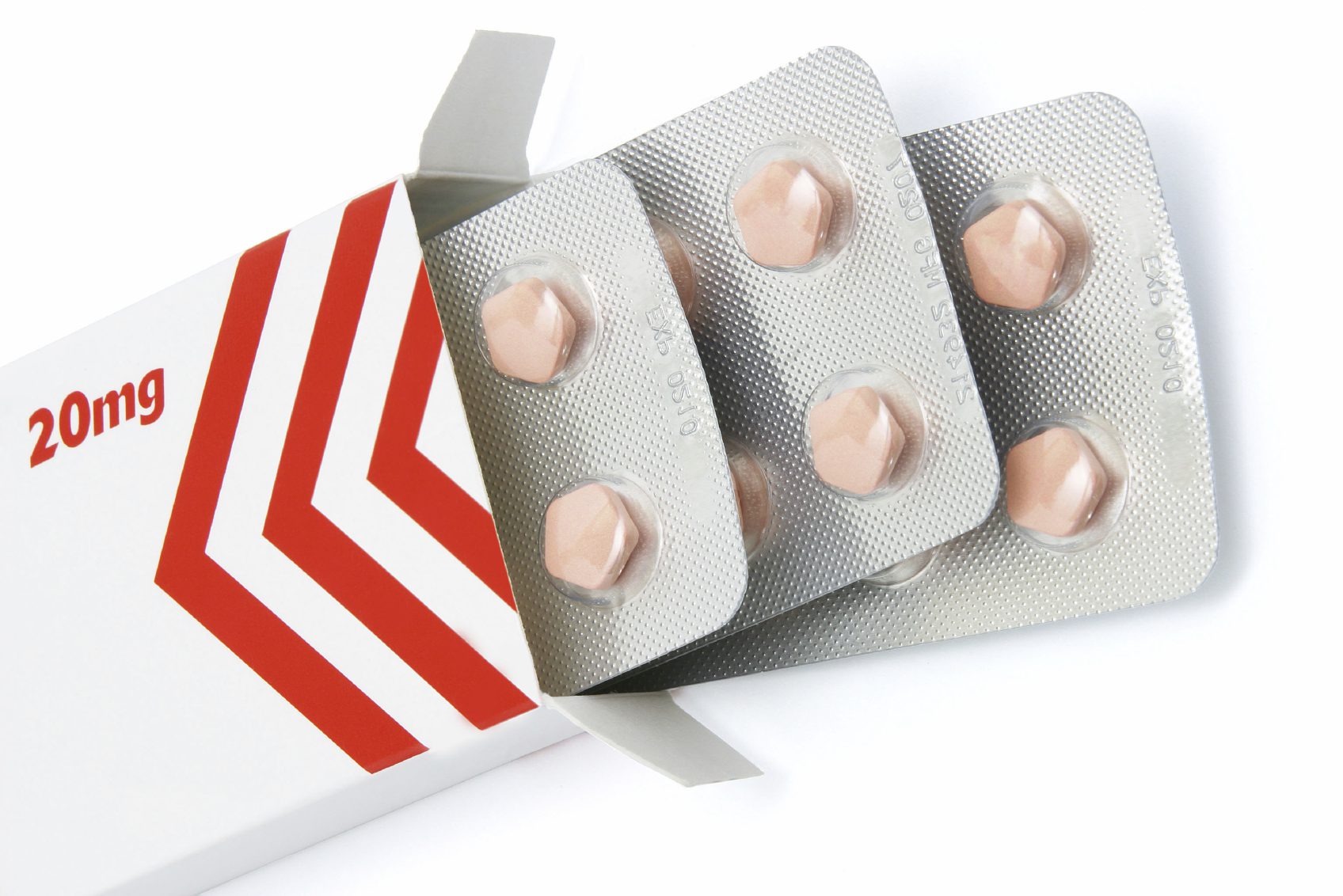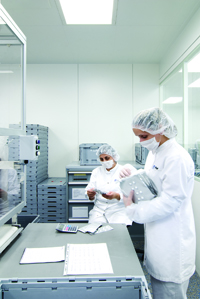The number of clinical trials using prefilled syringes continues to rise. From just a handful of studies testing drugs with the devices 10 years ago, the number increased to 54 studies in 2015, according to a data search of trials in clinicaltrials.gov.
This growth includes studies conducted internationally and can be attributed primarily to the rapid expansion of large molecule biological drugs in development. However, prefilled syringes are also increasing in popularity because they represent improved safety, accuracy and ease of use compared to conventional vial and ampoule packaging.
Join us 03 November 2016 for an Xtalks webinar to learn how clinical supplies professionals are working behind the scenes to bring these complex devices through clinical development. “Key Tips to Sharpen Your Clinical Trial Packaging Strategy for Prefilled Syringes” is presented by Fisher Clinical Services, a leading global provider of clinical trial supply services. Our two speakers have extensive engineering backgrounds in syringe assembly development, including the design of patented blinding and packaging systems.
Key Learning Objectives:
- Determine the best prefilled syringe packaging strategy based on your component configurations and clinical trial designs
- Prevent prefilled syringe assembly from adding delay to your clinical supply chain
- Acquire syringe assembly and labeling insights from experienced clinical packaging engineers based in the U.S. and Europe
What would you like to know?
To help us shape this Xtalks webinar, you will be asked some questions during registration. We invite everyone interested in supply partnerships to attend, no matter your level of experience with prefilled syringes. Here are a few questions we will address during the webinar.
1. What components do you expect will be most troubling?
The value of the device is in how effectively its components work together. Since the plunger rod and stopper function as both container closure and drug delivery they might present the largest headaches, especially when considering rotational torque during assembly. Needle safety devices (NSD) may raise additional issues. Some syringe barrels require high precision labeling to apply graduation marks. Clearly, manufacturing complexity of prefilled syringes has increased along with their functionality.
2. What are the anticipated lead times, volumes, and investments?
Projects that need to deliver drug to patients in 6 weeks will have a different flavor than those with a 6-month timeline. Both milestones are achievable; it’s just that the solutions will vary. Also variable are the planning details for projects that call for 10,000 syringes over the life of the study versus those that require 100,000 or even 1,000,000 syringes. Volumes are tightly connected to investment expectations, of course. But there are various approaches to meet these volume needs based on available financial and staffing resources. Note that concerns about capacity or production redundancy are alleviated thanks to the global infrastructure at Fisher Clinical Services.
3. What cold chain requirements are driving your project?
Time out of refrigeration, also known as time out of environment, has grown to be a crucial metric in clinical supply management due to the growth of biologics. To protect the shelf life of cold chain products, Fisher Clinical Services offers assembly and labeling system in refrigerated packaging rooms. A new fully automated system will begin cold room operation in early 2017. Considered the first system of its kind in the industry, the cold room syringe line may suit a range of projects and will operate in 2°- 8°C or 25°C / ambient.
4. What’s your approach to development?
Some prefilled syringe supplies projects operate within narrow guidelines. These are similar to commercial scale engagements with tight control over work flows and review. Other projects take a more open approach to developing the process. And most are somewhere in between these two extremes. Yet all can have equally high levels of quality. They differ only in the means to achieve this end.
Thank you for considering these questions. We look forward to your answers as we build our presentation to address your needs. Please make time to join us live 03 November 2016. Plan on an informative and interactive session, complete with case study examples of our past syringe work. Give your next prefilled syringe project a shot in the arm!
Speakers

Shawn Regits, Process Engineering Manager, Fisher Clinical Services
Shawn joined Fisher Clinical Services in 2013 as the Manager of Secondary Process Engineering. Shawn holds a degree in Mechanical Engineering. He started his career over 11 years ago as a design engineer and has worked in various process improvement roles for a major Pharmaceutical company. He also holds Six Sigma Black Belt and Lean Master Certifications with extensive experience in problem solving, error-proofing and process robustness. Shawn is currently responsible for Secondary Packaging equipment along with new technology deployment and process upgrades. Outside of work, Shawn is a father of two very active young boys and enjoys camping with friends and family.

Guido Hunkeler, Director Engineering & Automation, Fisher Clinical Services
Guido has worked in the Pharmaceutical industry for over 30 years. He joined Fisher Clinical Services in 1991 and serves as Director of Engineering and Automation at the Allschwil, Switzerland, facility. He is also a qualified PPI Process Manager (Practical Process Improvement) with extensive experience in problem solving, error-proofing and process improvement. In his current role Guido is responsible for all engineering related activities, purchasing and design of new machines. He also manages a team that develops new manufacturing systems and blinding technologies for clinical trial packaging components. In addition he is responsible for the packaging design department. With advanced expertise in automation for clinical trial packaging, he holds several U.S. and European patents, including a “Transport carrier for syringes, designed to avoid stopper movement during air transportation” (U.S. Patent number: 9144465).

Dr. Wolfgang Kramp, Senior Manager QA, Fisher Clinical Services
Wolfgang joined Fisher Clinical Services 10 years ago as a Senior Manager QA. He holds a Ph.D. in Organic Chemistry. His career started as a co-founder of a start-up in serving analytical method development and validation for the phyto-Pharmaceutical industry. Afterwards he moved to R&D of radio-Pharmaceuticals and developed methods for clinical imaging of cancer and atherosclerosis. After different positions as Head of Laboratory and Project Manager in different service companies he changed to QA in Allschwil. Currently he is responsible for the GMP compliance of utilities, rooms, machines, and computerized systems. His strong analytical thinking and experience as CAPA and PPI-Process Manager enables him to coach colleagues in Root Cause and Risk Analysis. Outside of work he spends a lot of time practicing sports and applies himself to his special interests in art (painting and sculpting).
Who Should Attend?
Clinical teams, plus professionals in clinical supplies, logistics and outsourcing, including those working within:
- Clinical Development
- Clinical Labeling
- Clinical Manufacturing
- Clinical Operations
- Clinical Packaging
- Clinical Pharmacy
- Clinical Project Management
- Clinical Quality Assurance/Quality Control
- Clinical Research Study Management
- Clinical Trials Management
- Clinical Trials Materials
- Clinical Trials Team
- Cold Chain Logistics
- Contract Manufacturing
- Drug Supply Management
- Investigational Supplies
- Investigator Site Management
- New Product Development
- Regulatory Affairs
Xtalks Partner
Fisher Clinical Services
Fisher Clinical Services is one of the world’s leading providers of clinical supply chain services.
With a network of cGMP facilities strategically located across the globe to support the conduct of clinical trials, we offer worldwide support for all aspects of clinical supply management including, clinical supply optimization, comparator, co-medication and ancillary supply sourcing, packaging, labeling, distribution, storage, through to returns and destruction. With more than 25 years of experience exclusively focused on clinical trials, we can offer guidance and full logistics support across all types of clinical programs and projects.
Media Partner
You Must Login To Register for this Free Webinar
Already have an account? LOGIN HERE. If you don’t have an account you need to create a free account.
Create Account




